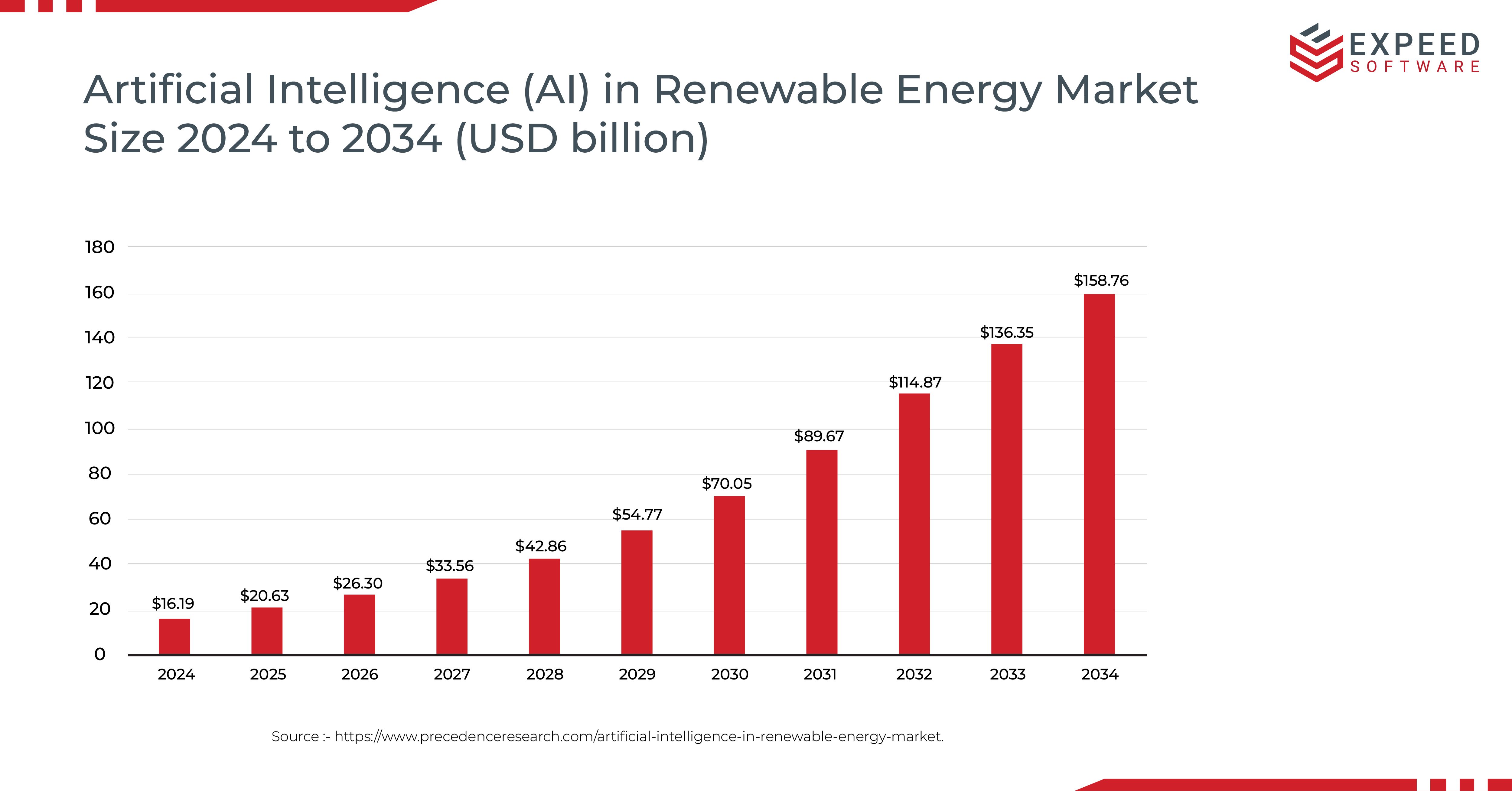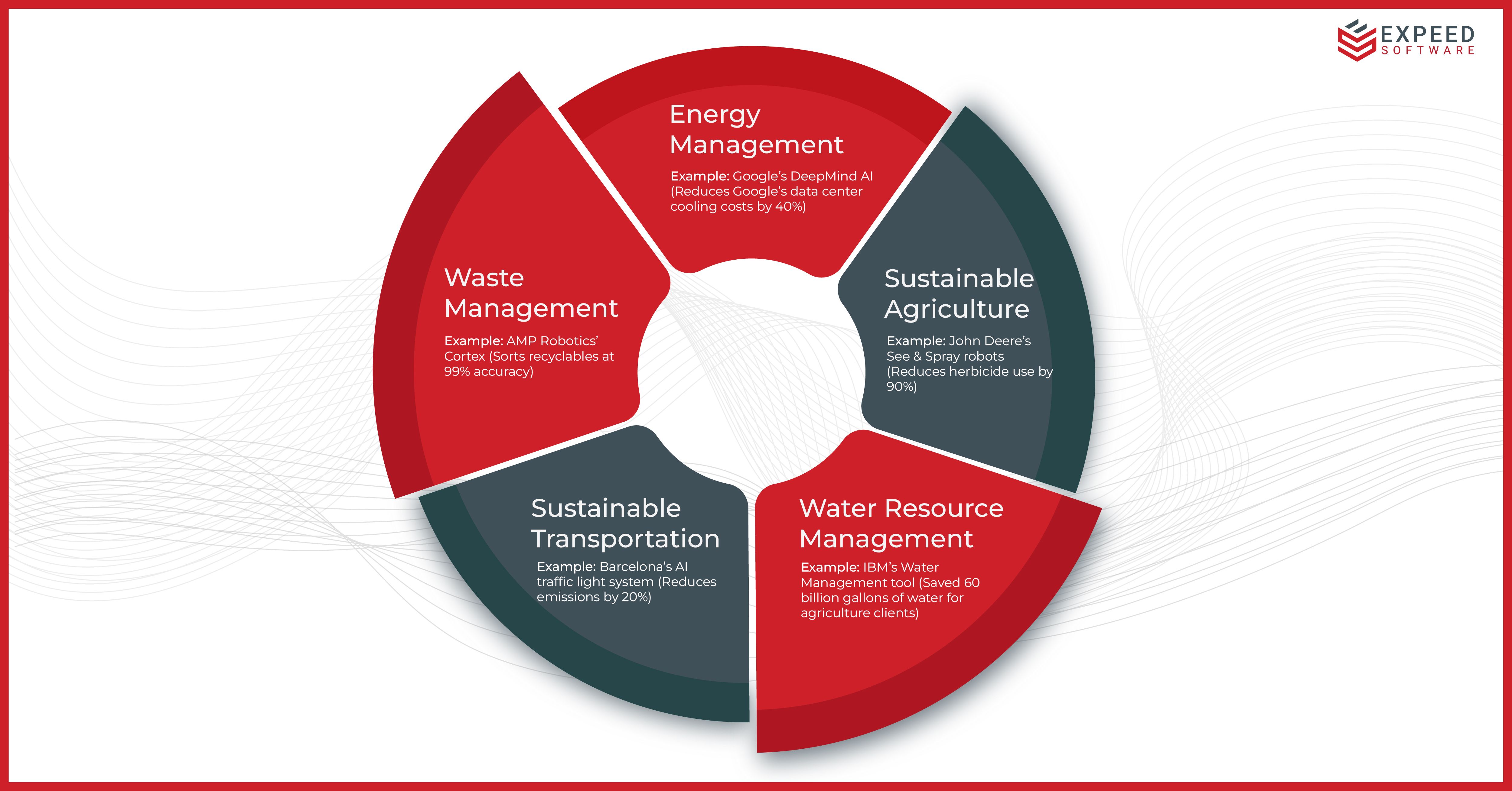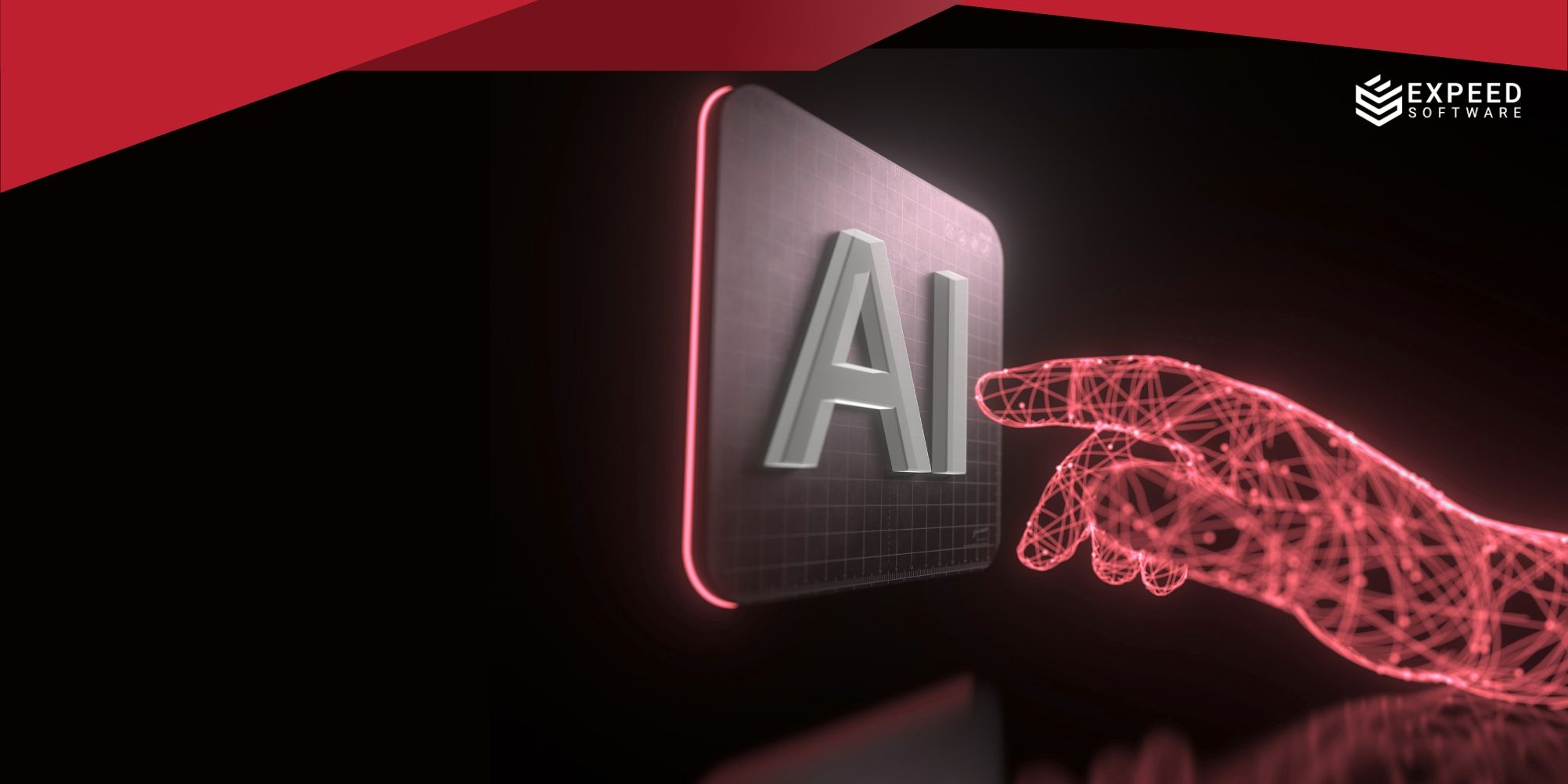AI isn’t just a buzzword—it’s already transforming how we tackle some of the world’s biggest sustainability challenges. From reducing carbon emissions to optimizing renewable energy, AI is making our planet greener, smarter, and more efficient. But how exactly does it do that?
In this post, we’ll dive into five powerful use cases where AI is driving real change, helping businesses and communities build a more sustainable future. Let’s explore how technology is making sustainability not just a goal, but a reality.
Let’s first understand how AI impacts sustainability.
The Role of AI in Sustainability
AI in sustainability is the practice of using AI to help solve environmental problems, such as pollution, waste reduction, and other challenges, to reduce their impact.
Here are a few ways how AI integration helps:
- AI can analyze energy consumption patterns and predict leaks that cause elevated consumption and send alerts prompting timely action to remediate the leaks. This will reduce the wastage of energy contributing to lower emissions.
- It predicts weather patterns and optimizes the operation of solar and wind farms, thus maximizing energy generation and reducing dependence on non-renewable sources.
The global artificial intelligence in renewable energy market size is predicted to reach around USD 158.76 billion by 2034. AI and sustainability go hand in hand, cutting down energy use based on predictive analytics.

Let’s now explore some of the best use cases of AI in sustainability with real-world examples.
5 Powerful Use Cases of AI in Sustainability
1. Energy Management
AI systems support companies to optimize energy usage. By analyzing real-time data to optimize energy generation, distribution, and consumption, AI allows more efficient use of energy resources consequently reducing carbon emissions.
By analyzing vast datasets of sensor readings from Google’s data centers including airflow, temperatures, and energy consumption, DeepMind’s AI reduced Google’s data center cooling costs by 40%, slashing carbon emissions by 12%.
2. Sustainable Agriculture
Unlike traditional methods, AI enables agriculture techniques like real-time monitoring of soil conditions, and plant health guiding prompt action to optimize the amount of resources such as water and fertilizer applied. This results in avoiding wastage of resources leading to reduced emissions as well as increased yields.
- John Deere’s See & Spray robots reduce herbicide use by 90%. The cameras on the sprayer’s boom scan the field and send data to a vision processing unit. The processors then target weeds precisely using machine vision and algorithms.
- According to the World Economic Forum, AI-driven agriculture could increase global crop yields by 70% by 2050 while using 50% less water. Leveraging data analysis to optimize irrigation schedules, and monitoring crop health in real-time, farmers can make decisions about water usage and resource allocation.
3. Waste Management
Using machine learning and smart sensors, AI optimizes sorting, recycling, and disposal, reducing landfill waste.
- AMP Robotics’ Cortex categorizes recyclables at 99% accuracy, doubling processing speeds. It does this by analyzing images of waste streams using computer vision to identify and categorize recyclable materials. It then provides this information to its robotic arm to accurately pick and sort different types of recyclables at high speed and sorting precision. By 2030, AI could divert 50 million tons of waste annually from landfills leading to reduced emissions and ground water pollution.
- AI can analyze vast datasets of chemical properties and molecular structures to predict and design polymers with desired biodegradable characteristics. Notpla is such an AI-designed biodegradable plastic that is already replacing single-use packing helping waste management.
4. Sustainable Transportation
AI enables smart routing, and autonomous vehicles to minimize emissions and energy wastage.
AI can analyze real-time traffic, weather, and road conditions to choose the most efficient routes, reducing unnecessary acceleration and braking, thereby optimizing energy usage.
- In Barcelona, AI reduced traffic congestion by 21% and emissions by 20% through adaptive traffic lights.
- AI-powered electric vehicles could lower urban transport emissions by 80% by 2040.
5. Water Resource Management
AI improves water resource management by analyzing real-time data to detect leaks, optimize distribution, and predict demand.
- IBM’s Water Management tool analyses large volumes of data from sensors and other sources to enable advanced features like leak detection, optimized water distribution, predictive maintenance, and demand forecasting. It saved 60 billion gallons of water in 2022 for agriculture clients.

Future Trends: AI and Sustainability Integration
AI and sustainability innovations across industries will be crucial in building a greener, more resilient planet.
By 2030 and beyond, AI and sustainability efforts will transform industries with advanced automation, predictive analytics, and real-time optimization. Precision agriculture will evolve further, using AI-driven robotics and climate-adaptive solutions to maximize yields while conserving resources.
AI and sustainability initiatives can work together to enable smart cities with energy-efficient infrastructure and intelligent waste management. Public transport will be electrified and optimized with AI, reducing reliance on fossil fuels.
Leveraging AI, IoT, and renewable energy to minimize carbon emissions will enhance urban living. AI will play a crucial role in making cities self-sustainable, resilient, and carbon-neutral, aligning with global climate goals for a greener future.
Keen to explore the possibilities of using AI in your business? We’re here to help – Get in touch!
References

Expeed Software is a global software company specializing in application development, data analytics, digital transformation services, and user experience solutions. As an organization, we have worked with some of the largest companies in the world, helping them build custom software products, automate processes, drive digital transformation, and become more data-driven enterprises. Our focus is on delivering products and solutions that enhance efficiency, reduce costs, and offer scalability.


